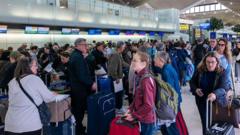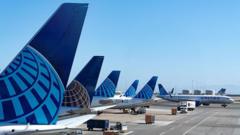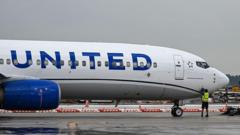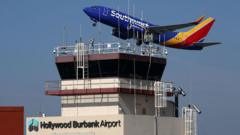In a concerning development for air travel, Newark Liberty International Airport experienced a brief loss of communication between its air traffic controllers and the planes they oversee last week. This disruption has led to several employees taking trauma leave and has resulted in hundreds of flight cancellations and delays. Reports indicate that Monday alone saw over 150 flights canceled, as per FlightAware.
Union representatives have confirmed that controllers were "unable to see, hear, or talk to" the aircraft under their control during the incident on April 28. Such a lapse in communication is serious, and has contributed to the ongoing staffing crisis faced by one of New York's busiest airports.
The Federal Aviation Administration (FAA) acknowledged this setback, attributing some of the challenges to an outdated air traffic control system, which has been impacting the workforce. They confirmed that while some controllers chose to take leave after the traumatic event, they are unable to quickly replace them due to the existing shortage.
Recent comments from United Airlines CEO Scott Kirby highlight the severity of the problem, as he announced the cancellation of 35 flights daily from Newark, indicating that the airport cannot handle its scheduled volume of operations. Kirby stated that ongoing technological failures during operations have compounded the issues, with more than 20% of FAA controllers reportedly abandoning their posts.
While the National Air Traffic Controllers Association has refrained from disclosing the exact number of controllers on leave, it confirms that employees have invoked provisions following a traumatic workplace incident. This turmoil at Newark coincides with the U.S. Department of Transport's recent initiatives aimed at increasing the number of certified FAA controllers, with a goal of hiring at least 2,000 this year.
The decision to ramp up hiring follows a controversial period, including the previous administration's mass layoffs after a deadly mid-air collision in Washington D.C. As officials grapple with these challenges, the FAA emphasizes its commitment to hiring and onboarding more air traffic specialists while improving retention of the experienced personnel that remain.


















